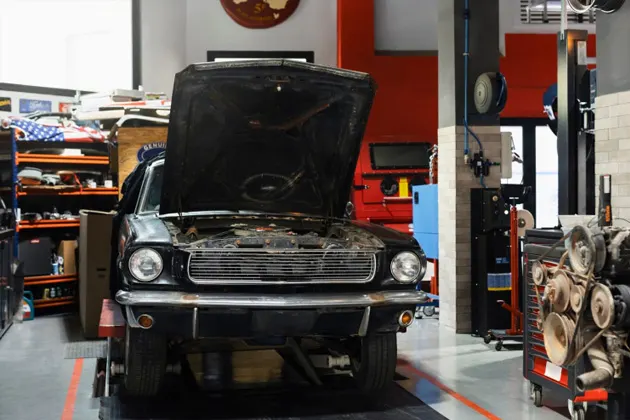The used car market offers a wide range of options for buyers looking for affordable transportation. One of the most promising categories is salvage vehicle sales, that is, the sale of cars that have been damaged but can be restored. This market segment attracts both private buyers and businesses, as such vehicles cost significantly less than new or used cars without damage.
The popularity of salvage car auctions is growing, as they offer access to thousands of cars at reduced prices. However, purchasing such vehicles requires careful analysis, knowledge of auction specifics, and an understanding of all potential risks.
Why Does the Salvage Vehicle Sales Market Attract Buyers?
The main reason why many people choose salvage vehicles is their low price. However, there are also several other advantages:
- availability of models – at auctions, you can find both budget and premium cars at attractive prices;
- possibility of restoration – many cars have minor damages that can be repaired for a reasonable amount;
- wide selection – insurance companies, banking institutions, and corporate fleets regularly put cars up for sale, providing a large variety;
- cost savings – buyers can save 30-60% off the market value of the car, making the purchase financially advantageous.
At the same time, it is important to remember that not all cars are equally suitable for purchase, and choosing salvage cars requires a careful approach.
Which Cars Most Often Fall into the Salvage Category?
Cars receive salvage status for various reasons, and buyers should understand which factors can affect the future operation of the vehicle. The main reasons why a car becomes salvage:
- traffic accidents – cars that have suffered significant damage due to a traffic accident;
- natural disasters – cars that have been damaged by floods, fires, or hail;
- theft and recovery – vehicles that were found after being stolen and written off by insurance companies;
- bank repossessions are vehicles confiscated due to loan defaults, which received a salvage status during the sale.
Each of these options has its own characteristics and potential risks that should be considered before making a purchase. It is important to remember that purchasing a vehicle with a salvage title can affect its future value and the possibility of obtaining insurance. Therefore, before purchasing such a vehicle, it is recommended to conduct a detailed technical inspection and check all necessary documentation.
How to Choose a Quality Salvage Car?
To avoid a bad purchase, it is worth adhering to a few key principles:
- Checking the car’s history – use the VIN code to obtain reports on previous damages, mileage, and insurance claims.
- Evaluation of repair costs – before purchasing, calculate whether the expenses for restoring the car are justified.
- Analysis of the car’s condition – carefully review the photos, technical description, and check for possible hidden damages.
- Considering future expenses – in addition to repairs, take into account the costs of transportation, registration, and insurance of the car.
By paying attention to these aspects, you can significantly reduce risks and make a profitable purchase.
How Does the Process of Buying a Salvage Car Work?
Most salvage cars are sold at specialized auctions, and the buying process consists of several stages:
- Registration on the platform – the buyer needs to create an account and make a deposit.
- Choosing a car – reviewing available lots, assessing their condition, and calculating repair costs.
- Participation in the auction – working with manual or automatic bids to get the best price.
- Payment for the car – after winning the auction, the buyer receives payment instructions.
- Delivery and registration – organization of the transportation of the car to the place of repair or operation.
This system ensures the accessibility and transparency of the process, allowing buyers to receive advantageous offers.
What Risks Exist When Buying a Salvage Vehicle?
Although salvage vehicle sales have many advantages, they can also carry certain risks, including:
- serious damage – not all damage is visible in photos or described in documents;
- registration issues – in some countries and states, salvage vehicles have restrictions for registration;
- high repair costs – in some cases, repairs can cost more than buying the car itself;
- lack of spare parts – for some models, finding parts can be difficult or expensive.
To avoid unpleasant surprises, it is advisable to use reputable auctions, analyze lots, and consult with experts.
Is it Worth Buying a Salvage Car?
Buying a salvage vehicle can be a great investment for those who understand all aspects of such a deal. Key points to consider:
- if you have experience in repairs or work with reliable craftsmen, then salvage cars can be a profitable option;
- for businesses related to transportation or logistics, purchasing such vehicles can significantly reduce fleet costs;
- auto service owners often buy salvage cars for restoration and subsequent resale.
The main thing is to evaluate all factors, analyze costs, and choose reliable platforms for purchases.
Conclusion
The salvage vehicle sales market offers excellent opportunities for those who want to purchase a car at a discounted price. However, like any other financial transaction, this purchase requires a careful approach, an analysis of the car’s condition, and an assessment of future costs.
With the right approach and the use of trusted platforms, you can find a car that will serve you well for many years after restoration. If you are ready for a responsible choice, auctions of restored cars can be a beneficial solution for you.










